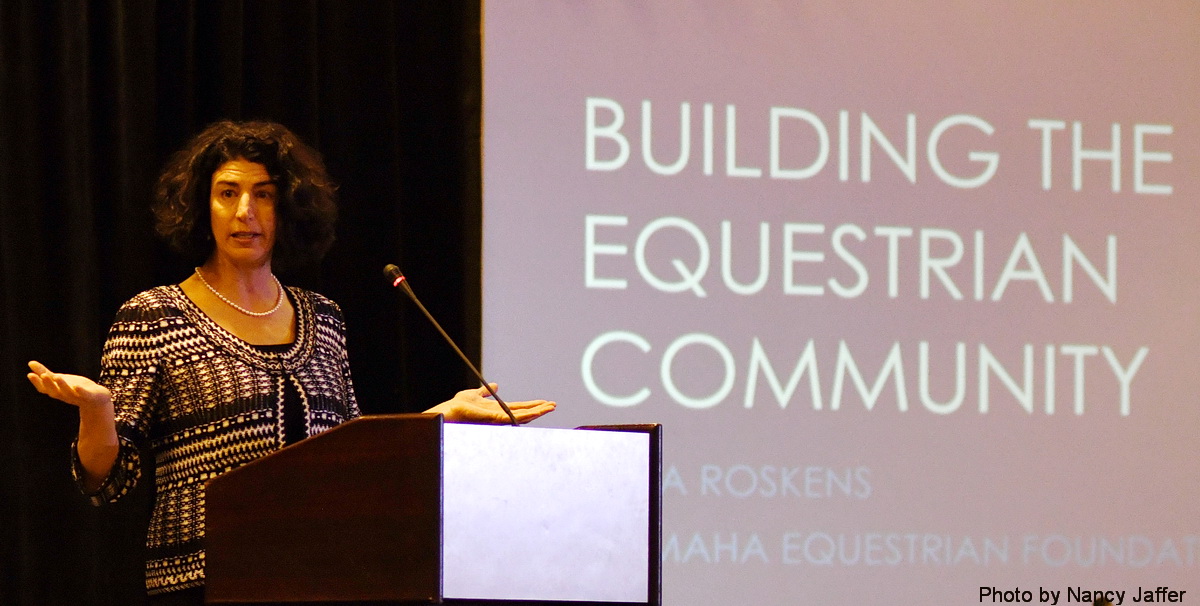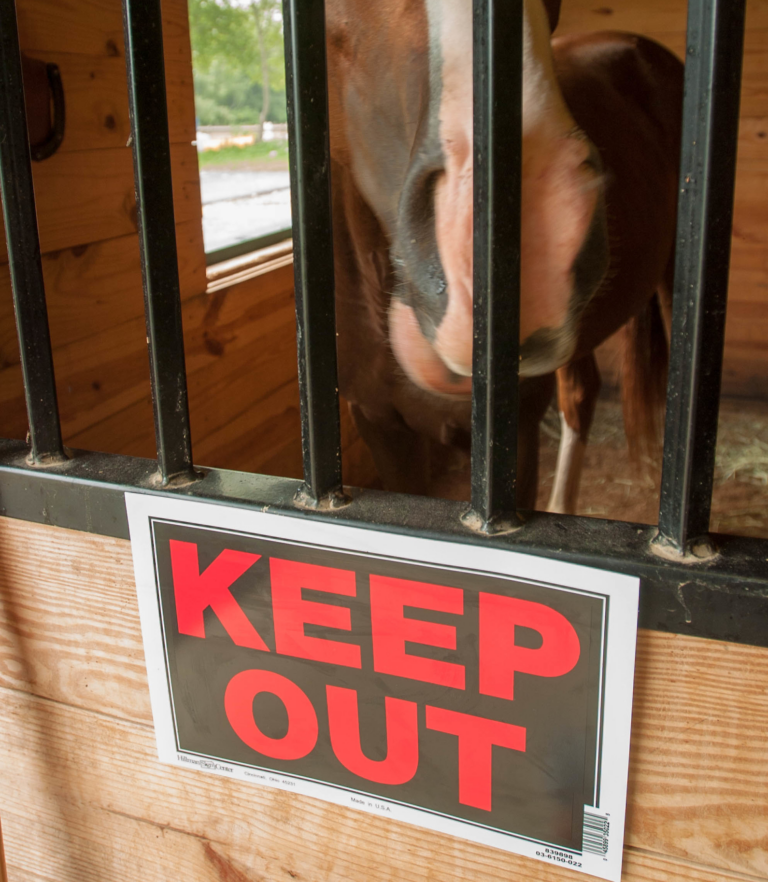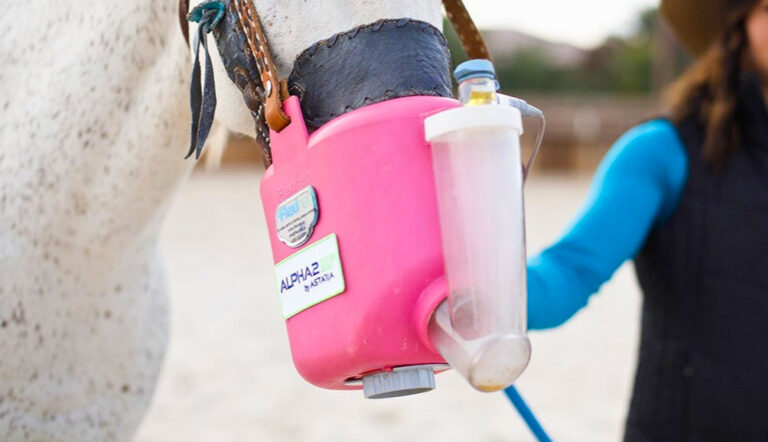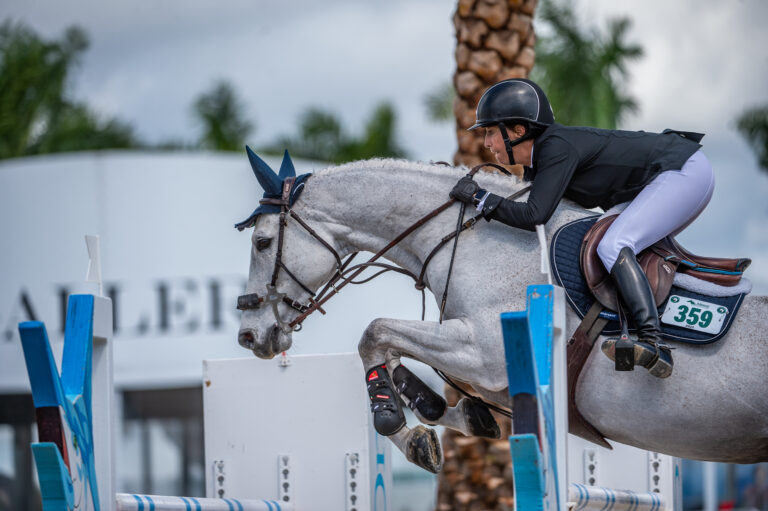
It seemed like an impossible dream. The idea of Omaha, Nebraska, hosting the Longines FEI World Cup™ Jumping and Dressage finals, which had been held everywhere from glamorous European cities to glittering Las Vegas, drew a few snickers and more skepticism.
In 2010, those behind the Omaha effort were looking at an FEI schedule of future championships to come up with a plan. Lisa Roskens scrawled on the printout, “Four years out, we go for 2017.”
“We didn’t think we’d win 2017, but we thought, `If we’re ready to bid, we can learn from losing and home in and find our presentation,’” Lisa recalled for her audience yesterday at the U.S. Hunter Jumper Association’s annual meeting in San Antonio, Texas, where she was the keynote speaker.
Omaha did, however, win on the first try (the reaction of organizers? “Combined celebration and marginal horror,” Lisa revealed) and when the germ of an idea grew into execution, the snickers turned to smiles for a job very well done.
So how did the concept of the Omaha World Cup develop a major success upon execution? It was a community effort, and Lisa’s explanation of what that means fit in perfectly with the theme of the annual meeting, where one of the key points involves building community.
(Read more about how the World Cup Finals came to Omaha)
Lisa wanted to create an equestrian community. “We had equestrians and community, but they weren’t together,” she commented. She saw a way to change that, and the World Cup effort turned out to be just the ticket.
An amateur jumper rider who is the chairman and CEO of investment management firm Burlington Capital Group, Lisa is a unifier with a positive outlook that pays dividends.
In the equestrian world, she pointed out, “we have a lot of communities. What are we doing with them and where are we going?”
In Omaha, the thought was “let’s do something unifying. A community needs to be effective and have a goal,” continued Lisa.
“Think about something, when you’re looking at your world, that’s bigger than you,” Lisa advised.
“Try to build a group and give back to the community. Once you’ve got a goal, bounce that idea off every single person you can find, because you want to find out what you don’t know.
“Write down everything they say. Don’t disagree with them, ask them what they think. The only real way you’re going to know your idea is going to work is to get as much information outside yourself as possible. Ask the people who you are sure aren’t going to like it.”
Lisa looks on criticism as a positive.
“Learn to embrace it and see it as an aid,” she said. “It helps me figure out the obstacles I’m going to face and the best path to navigate.”
Meanwhile, don’t write off the critics.
“Sometimes they come over to your side. They might join your team. You never know where your allies are going to come from.”
Once there is a goal, it’s time to set up a realistic time frame and break the project down into pieces, the same way you’d break a marathon down into 26 on-mile runs (Lisa has also been a marathoner.)
She emphasizes that any project needs the “best possible people…a group better than you.” You have to figure out if they get along and can leave their personal agendas behind.
As it worked out, “one of the most exciting things about the World Cup was the friendships we made.”
The Omaha World Cup is history, but the annual show that was its platform, the International Omaha, continues and keeps getting better. The efforts of the Omaha Equestrian Foundation, which put on both events, has had the effect of being a stimulus for both dressage and show jumping in the Midwest, bringing in more riders, trainers and fans.
The work continues, with more innovation planned for the 2018 edition of the International in April. It offers a lesson for anyone seeking to achieve something.
“Implement, analyze, repeat,” Lisa said. “Just run the first mile, and the next one will come.”











